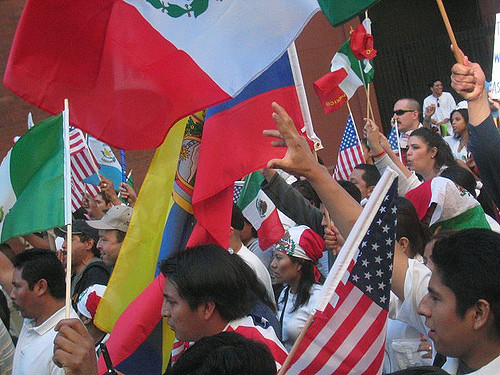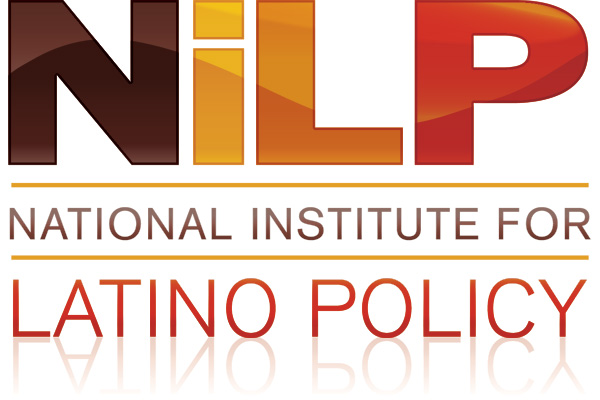Latino Leadership in the Trump Era

*Why you should read this: Because Trump’s Anti-Latino rhetoric is an opportunity for visibility and transformation. Because the transformation must start at the local level. Because the potential for leadership is greater than the list of names listed in this article. VL
By Marcela Berland and Frank Gómez, NiLP (6.5 minute read) 
Trump is in. Latinos are out. At least that is what one might conclude from media reports since the Trump inauguration. Lacking survey data, we can only speculate about attitudes with respect to the protection and advancement of Latino interests under a Trump Administration.
Here’s the background.
Notwithstanding many analyses and news accounts, Americans seem more confused than ever about Hispanics. A recent article reported that a majority of Americans are unaware that residents of Puerto Rico are U.S. citizens. And many well-educated people believe that the 11 million undocumented immigrants here are all Hispanics (about 8 million are). Some Americans regard Hispanics as “other,” not real, hamburger-loving, flag-waving red-blooded Americans! These are but a few examples.
Hispanic “leaders,” too, miss the mark. Some refer to 50 million Hispanics (data from the 2010 census), or 55 million in 2004, instead of using today’s number – 58 million or 59 million. And how many know that if Hispanics were a nation, in GDP terms they would outstrip Canada’s GDP?
What’s in store?
With this backdrop, we ask, what is in store for media visibility of Latino leaders at the outset of the Trump Administration. Can Latino leaders exploit the numbers, the $1.5 trillion – yes, with a “T” – in purchasing power? Can they increase the recognition of gaps in social, economic and political equity – and forge policies to address them? And as part of the largest minority, can Latino leaders build influential coalitions with African Americans, Asian Americans and American Indians to harness still greater numbers and wield still more influence?
These are tough questions. And we do not mean to suggest that it is a matter of countering President Trump and his supporters. For there are many well-intentioned, reasonable friends in the Trump camp who, in time we hope, will wield greater influence than during the campaign.
Among these is Héctor Barreto, chairman of Los Angeles-based non-partisan but conservative-leaning The Latino Coalition. Barreto headed the Small Business Administration under President George W. Bush. He co-hosted with the Congressional Hispanic Leadership Institute an inaugural reception at the elegant Reagan Building in Washington, DC that attracted many past and present Latino influencers, including Democrats and independents.
Other influential voices are Republican Sol Trujillo, an entrepreneur and philanthropist, and Democrat Henry Cisneros, also an entrepreneur. In 2010, they founded the Latino Donor Collaborative. Together, they write op-eds, do interviews and speak out about Latino realities, particularly the economic contributions they are making to our country. Not political, they counter the ill-informed who believe that Latinos – including immigrants – are a drain on the economy and do not contribute to America. Check them out!
[pullquote]. . . there are many well-intentioned, reasonable friends in the Trump camp who, in time we hope, will wield greater influence than during the campaign.[/pullquote]The President’s executive orders on immigration and a crackdown on undocumented persons have inspired local protests. But for the most part they have not been met by full-throated, forceful actions from the major national Latino organizations. José Antonio Vargas, an undocumented Filipino immigrant and journalist, has been highly visible. He courageously risked deportation by appearing on public affairs television programs and even attending the President’s address to a joint session of Congress.
Mexican Americans are nearly two-thirds of the Hispanic population. Puerto Ricans, centered on the Eastern seaboard, but also widely dispersed, are about 9.2 percent, Cubans are 3.5 percent, Dominicans are 2.8 percent and Central and South Americans make up the rest. Regional, sub-ethnic factors are at work, and prove that generalizations about Hispanics are not justified – although we see them daily.
Latinos also vary widely in political ideology.
Although most Mexican-Americans identify with the Democratic party, many are conservative and Republican. Cuban Americans are divided. Those who fled Castro’s Cuba remain largely conservative and Republican. Their children and those who came later, however, lean Democratic. The “other” category, including immigrants from Latin America and Spain, are found across the political spectrum.
One long-expressed view is that Hispanics comprise so many sub-ethnicities that they will not soon be able to unite behind a single leader. How strange! Do whites, blacks, Asian Americans and Texans unite behind a single leader? No! It is unrealistic to expect that Latinos can and should follow a single leader. Sorry. It ain’t gonna happen.
Still, ask a person on the street who is a white leader and respondents can name several. Ask who is an African-American leader and respondents will again come up with a few names. Ask who is a Latino leader and the respondent would be hard pressed to recall a single name, except perhaps that of Marco Rubio because of his campaign publicity. As noted below, this is a result of the failure of our media to cover Latino issues – and leaders – appropriately.
The key post-election questions are these:
- How can Latino leaders translate the population numbers and the rapidly growing $1.5 trillion in purchasing power into political and economic power;
- How can Latino leaders coalesce on vital issues of interest to Latinos like jobs, health care, greater educational opportunity and immigration reform, and
- What voices, whether individual or institutional, can emerge as credible articulators of Latino aspirations and realities?
To whom will Hispanics turn for national leadership today? The question, as in all politics, is highly speculative. There is no dearth of leaders.
Although they abound, many lack the visibility needed to influence public opinion. A major problem is that the media and others neglect them. We must applaud those few Latino voices who do appear. María Teresa Kumar of Voto Latino and Raúl Reyes, an attorney, MSNBC commentator and a columnist, and María Hinojosa of Futuro Media Group are three who add regular, insightful and articulate perspectives. And we applaud Angelo Falcón, President of the National Institute for Latino Policy, for his cogent analysis of issues of transcendental importance.
We must compliment the media outlets that give space to Kumar, Reyes, Hinojosa, Trujillo, Cisneros and a few others. But we must also criticize heartily the major media, especially television, for not getting it. During the new administration, they will have to do a better job – a much better job – of being inclusive not only in public affairs programming but also in news coverage. Shame on them!
How Latinos think, act, and coalesce can translate to change.
Besides Voto Latino, other organizations that can provide interview subjects are the National Association of Latino Elected Officials, the National Hispanic Leadership Agenda (a coalition of 41 Latino organizations that has spoken out), the United States Hispanic Leadership Institute, the Congressional Hispanic Leadership Institute, the League of United Latin American Citizens, the National Council of La Raza, The Latino Coalition, LatinoJustice PRLDEF, the Mexican American Legal Defense and Education Fund, the National Association of Hispanic Journalists, the Latino Corporate Directors Association, DNC Chair Pérez and many more. Do media editors and producers have any clue about these and other fine organizations? If they do, they don’t show it.
Some Latino leaders are veterans, while some are new faces who are still on a pathway to primetime. But leaders, they are. How their fates play out in the new scenario is highly speculative. They are faces to watch, mainstream media willing. Time and circumstances will tell whether they can survive the test of the national spotlight. We like to think that they will.
Our earlier research on Latino leaders’ views has been “spot on.” And we will be conducting new research on these and related issues. The key questions: What they think, how they act, how they coalesce, how their views get the media and political attention they deserve, and how their influence can translate into change.
Despite the outstanding leaders in the Hispanic community, their qualities and concerns remain in the background while the “pols” talk about the communities they represent without including them. At 59 million and growing rapidly, Latinos deserve a bigger piece of the media spotlight.
This article was originally published in the National Institute for Latino Policy Report.
Do you like stories that reflect authentic Latino life in the U.S.?
Be part of a positive change.
Marcela Berland is the founder and president of LatinInsights, a New York City-based polling firm specializing in the Hispanic market, politics and Latin America. She can be reached at mberland@latininsights.com
Frank Gómez, a partner, is a former senior Foreign Service Officer, corporate executive, longtime Hispanic activist, writer and analyst. He can be reached atfragobf@outlook.com.

